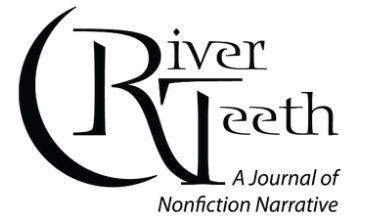Though the temperature outside is starting to drop, you can stoke the fires of your writing practice by submitting to contests with deadlines of October 15, 16, 17, and 18! Poets, there are multiple awards to win, including a prize of approximately $66,500 for a year of travel and study outside of North America, and $5,000 plus publication of a poetry collection by Alice James Books. All contests offer a cash prize of $1,000 or more and two are free to enter. Keep those literary fires burning!
Alice James Books
Alice James Award
A prize of $5,000 and publication by Alice James Books is given annually for a poetry collection by a poet residing in the United States. All entries are considered for publication. Deadline: October 16. Entry fee: $30.
Amy Lowell Poetry Traveling Scholarship
An award of approximately $66,500 is given annually to a U.S. poet for a year of travel and study outside of North America. Deadline: October 15. Entry fee: none.
Copper Nickel
Jake Adam York Prize
A prize of $2,000 and publication by Milkweed Editions is given annually for a first or second poetry collection. Amaud Jamaul Johnson will judge. Deadline: October 15. Entry fee: $25, which includes a subscription to Copper Nickel.
John Pollard Foundation
International Poetry Prize
A prize of €10,000 (approximately $10,732) is given annually for a debut poetry collection published during the current year. Deadline: October 18. Entry fee: none.
Pulitzer Prizes
Prizes in Books
Six prizes of $15,000 each are given annually to honor books of poetry, fiction, general nonfiction, U. S. history, biography, and memoir or autobiography published in the United States during the current year. American authors only are eligible for the poetry, fiction, general nonfiction, biography, and memoir or autobiography categories. Deadline: October 17. Entry fee: $75.
San Diego Entertainment & Arts Guild
Steve Kowit Poetry Prize
A prize of $1,000 and publication in San Diego Poetry Annual is given annually for a single poem. The winner will also receive an invitation to read at an award ceremony in April 2023. Deadline: October 15. Entry fee: $15.
Silverfish Review Press
Gerald Cable Book Award
A prize of $1,000, publication by Silverfish Review Press, and 25 author copies is given annually for a first poetry collection. All entries are considered for publication. Deadline: October 15. Entry fee: $25, which includes a copy of the winning book.
TulipTree Publishing
Humor Story Contest
A prize of $1,000 and publication in the Fall/Winter issue of TulipTree Review is given annually for a humorous poem, story, or essay. Deadline: October 17. Entry fee: $20.
Visit the contest websites for complete guidelines, and check out the Grants & Awards database and Submission Calendar for more contests in poetry, fiction, creative nonfiction, and translation.





